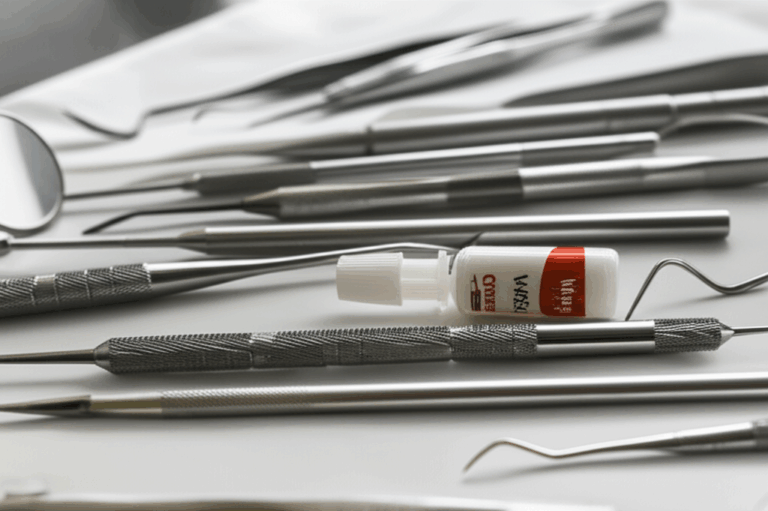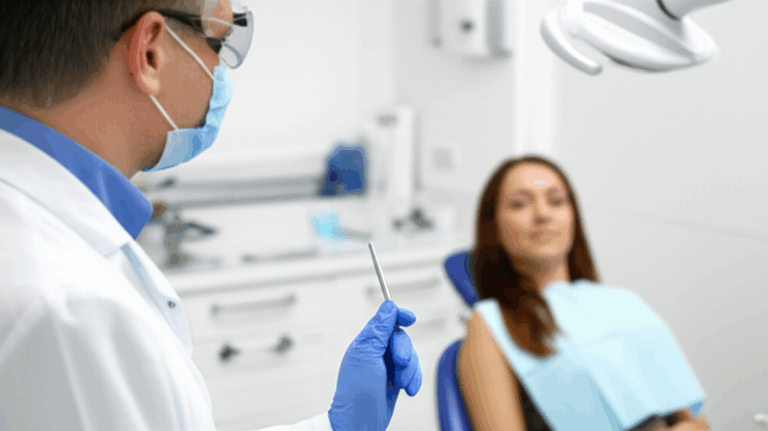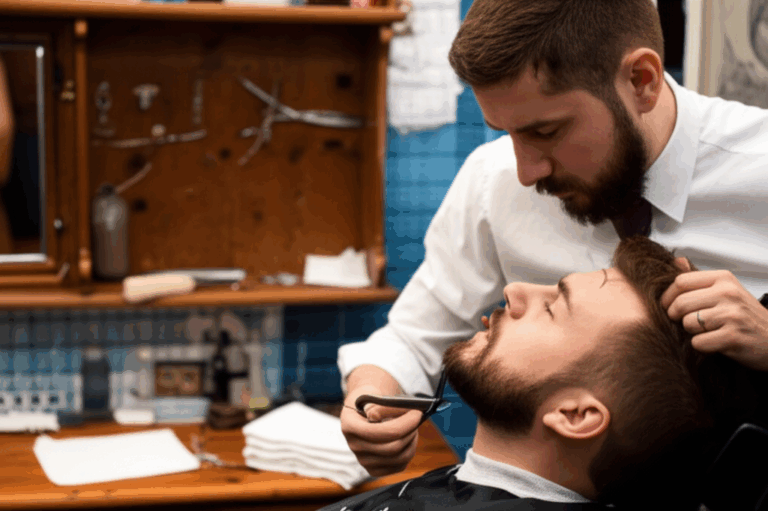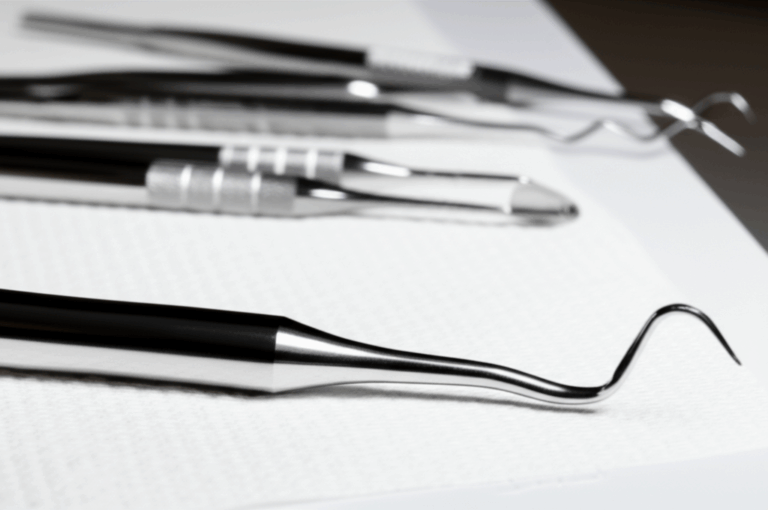
Can a Dentist Have Tattoos? Navigating Professionalism and Personal Expression in Dentistry
Have you ever wondered if your dentist can have tattoos? Maybe you’ve seen a dental hygienist with a tiny heart on her wrist, or maybe you’re a dental student thinking about getting your first tattoo. If so, you’re not alone! Dentists, like everyone else, want to show who they are, but they also need to keep their jobs and earn trust. This article will help you see when tattoos in the dental job are okay, when they might cause issues, and how to find the right balance between being yourself and looking right for work.
Table of Contents
1. Introduction: Why Talk About Tattoos and Dentists?
When I walk into a dental office, I look for a friendly face and clean tools. But sometimes, I notice something else—a neat tattoo showing from under a lab coat. Tattoos are common now. Almost half of young adults have one. Still, people question if tattoos fit in the clean world of dentists.
Why talk about this? Because today’s dental workers want to be themselves. But they also want to keep patients at ease and follow office rules. If you’re thinking about a tattoo or already have one, read this first!
2. Are Tattoos Allowed for Dentists?
Simple answer: Yes, a dentist can have tattoos. But there are some rules—just like most things in life.
Dentists are healthcare workers. Their job is to make people feel safe and cared for. Tattoos, by themselves, don’t make anyone less skilled or kind. But some patients or office bosses might have strong feelings about tattoos you can see.
A dentist with tattoos can work anywhere as long as they follow the office’s rules. The American Dental Association (ADA) and most state dental boards don’t say tattoos are bad. They do expect everyone to look proper. If you love tattoos, you might need to cover them up at work or choose spots that clothes hide.
3. Why Does Professionalism Matter in Dentistry?
Being a dentist is more than fixing teeth. Patients share their worries and even secrets with their dentist. That’s why people want their dentist to look and act right for the job.
Acting professional helps build patient trust. When patients trust you, they relax and listen to your advice. Looking proper means clean hands, neat clothes, and polite ways.
Tattoos don’t always make you less professional. It matters what the tattoo is, where it is, and how you act. A flower tattoo on your arm can look nice, but a rude or violent picture can upset people.
Being professional means:
- Clean clothes or a lab coat
- Good manners
- Listening to patients
- Clean hair and nails
4. What Do Patients Think About Dentists with Tattoos?
Here’s a big question: Do patients like dentists with tattoos? Let’s look at some facts.
Table: Patient View of Visible Tattoos in Dentistry
| Patient Group | Okay With Simple Tattoos | Not Okay With Tattoos | Don’t Care/Neutral |
|---|---|---|---|
| Age 18-29 | 85% | 3% | 12% |
| Age 30-49 | 72% | 15% | 13% |
| Age 50+ | 55% | 28% | 17% |
| Rude Tattoos (all ages) | <5% | 95%+ | — |
Most younger patients don’t care about tattoos—if they aren’t rude or scary. Older people are less sure; some might even pick a new dentist if they see tattoos they don’t like. People from different places or backgrounds see tattoos in different ways. In some places, tattoos still get a bad rap.
The trick? If your tattoo is small, simple, and easy to cover, most people won’t care. But a big tattoo on your neck or face? Some families might not like that. So, think about who your patients are.
5. Can a Dental Hygienist or Dental Assistant Have Tattoos?
The rules for dental hygienists and assistants are almost the same as for dentists. These workers are close to patients. How they look matters too.
A dental hygienist with a butterfly tattoo on her ankle probably won’t have trouble. A dental assistant with a neck tattoo might need a shirt with a collar or to cover it with makeup.
Every dental office sets its own dress code and rules for tattoos. Most say “no” to tattoos that upset people or tattoos you see on faces, hands, or necks.
Remember:
- Read your job’s rules
- Ask your boss if you’re unsure
- Cover tattoos if the rules or patients expect it
6. Where on the Body Are Tattoos Okay for Dentists?
Not all spots for tattoos are equal—at least, not for work.
Here’s a quick list:
- Chest and Upper Arms: These spots are usually covered by work clothes. Tattoos here are almost never a problem.
- Forearms: These are okay if you wear long sleeves. Some places allow short sleeves if the tattoo is simple and friendly.
- Hands, Neck, Face: These spots are watched closely. Most clinics want you to cover tattoos here, or not have them at all. Few dentists have tattoos on their face.
No matter what, keep it kind. Stay away from tattoos that someone may think are rude or scary.
7. What Do Dental Offices Say About Tattoos?
All dental offices want to feel safe, friendly, and professional. This means bosses often make rules about how workers look—including tattoos.
Table: Dentist Tattoo Rule Highlights
| Rule | Private Office | Big Dental Chains | Clinics/Hospitals |
|---|---|---|---|
| No face/neck/hand tattoos | 85% | 95% | 90% |
| Cover with clothes needed | 65% | 80% | 75% |
| Small hidden tattoos okay | 90% | 95% | 85% |
| No rude tattoos | 99% | 100% | 100% |
Some clinics have a handbook; others decide as they go. Bigger companies (like dental service groups) usually have stricter rules than a smaller dental office. But all want tattoos to look fine for work.
If you’re not sure, ask in your job interview. It helps to be clear and honest.
8. Do Tattoos Affect a Dentist’s Career?
Let’s talk about what many worry about: Could a tattoo hurt your chances for a job or moving up?
Truth is, in lots of places, the answer is “not if you’re smart about it.” Most bosses care more about your skills, how you talk to people, and your background. Still, a big dark tattoo on your neck could make some places say no, especially if the patients are older or more careful.
Dentists with small, hidden tattoos almost never have a problem. Those with lots of tattoos might find work easier in places with young or open-minded clients. If you plan to work at a [digital dental lab], or run your own [dental ceramics lab], keep this in mind.
If you already have tattoos, focus on being your best at work. Let your hard work talk louder than any tattoo.
9. How Should Dentists Manage Their Tattoos at Work?
Problem: You have tattoos and worry they might upset some patients.
Let’s think about the worry for a minute. Some patients might say nothing but then pick a new dentist next time. Bosses might not pick you for big jobs. Or a parent might say their child can’t see “the tattoo dentist.”
But don’t worry—there’s a fix! Here’s what to do:
- Choose tattoo spots you can cover—like your upper arm, back, or even leg.
- Use a lab coat, scrub jacket, or long sleeves to hide tattoos on your arms or wrists.
- Pick art that won’t upset anyone. Flowers, animals, or simple words are usually okay.
- If you want a new tattoo but aren’t sure, ask your boss or see what others do at work.
- Be proud but not pushy. If patients ask, keep answers short and friendly.
Some dental offices, especially new ones, are getting more relaxed about tattoos. For example, at a youth-focused china dental lab, staff might be allowed to show who they really are—tattoos and all!
10. The Future of Tattoos in Dentistry
Things change fast. More young dentists and patients have tattoos than ever. That means people are changing their minds.
As time goes on, offices see tattoos as a way for workers to show who they are. Many patients now see a dentist with tattoos and think, “Hey, this person is just like me!” Some offices even use their staff’s style—tattoos included—as part of their brand.
Does this mean anything is okay? Not really. It’s still smart to keep it proper, stay neat, and check your job’s rules. But the future of tattoos in dentistry looks good for those who can balance art and skill.
11. Frequently Asked Questions (FAQ)
Q: Can a dental student have tattoos?
A: Yes, but schools might ask you to cover them, especially in clinic.
Q: Will a tattoo stop me from getting a dental job?
A: Not if it’s not rude and can be covered. Some places are stricter, so always check.
Q: What if a patient doesn’t like my tattoo?
A: Be nice. Cover it if you can, and follow your boss’s advice.
Q: Are hand, neck, or face tattoos ever okay?
A: Almost never. Most places want those tattoos covered or don’t want them at all.
Q: Are there laws that protect dentists with tattoos?
A: Only for tattoos for religion. Otherwise, jobs can set their own dress code.
12. Key Takeaways: What Should You Remember?
- Dentists can have tattoos—but smart spot and art choices matter.
- Most patients don’t mind simple tattoos—especially younger ones.
- Dental offices set their own rules. Always ask about the tattoo policy when you apply.
- Hand, neck, and face tattoos are usually a no-go in dental work.
- To keep job choices open, pick tattoos you can cover with work clothes.
- How you act counts. A happy smile and good care win trust every time.
- Dental work is about skill and caring. Tattoos don’t change that.
If you want to know more or see other jobs in dentistry, remember there are many places, from [crown and bridge lab] to [removable denture lab], where you can show your style and still be professional.
> Being yourself at work is important. In dentistry—like in life—balance your style with caring for others, and you’ll always have something to smile about.
References
- Pew Research Center (2010), “Tattoos in America”
- American Dental Association
- Common HR rules from dental clinics
- Talks with dental workers








